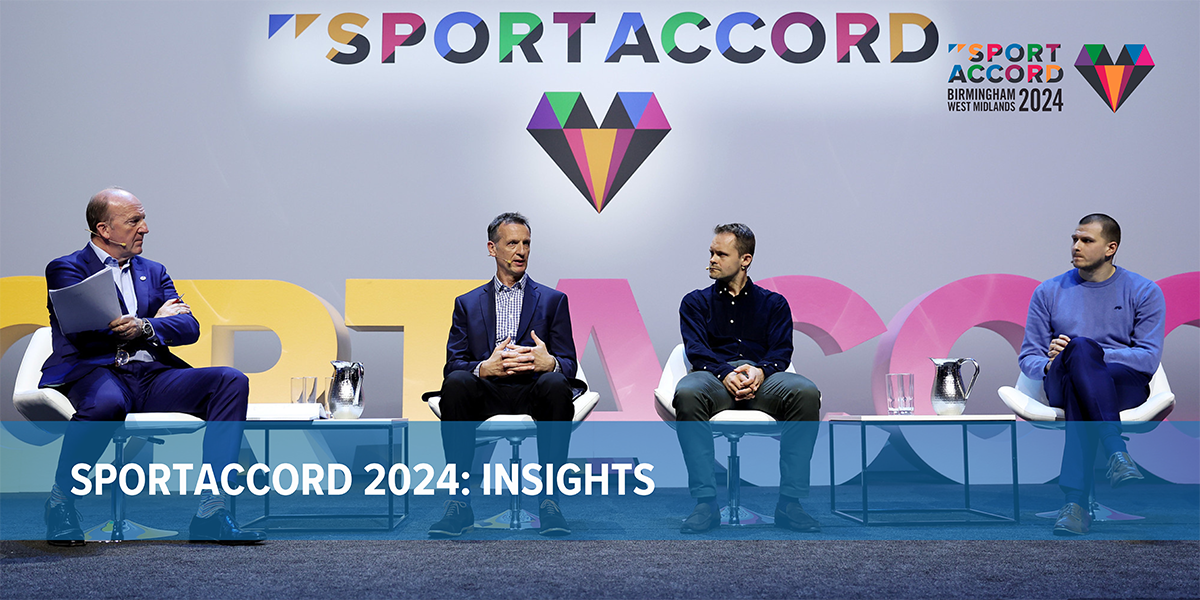It’s fantastic to see the world’s most successful athletes are now also famous for their openness about the importance of mental health.
The testimonies from Simone Biles, Roger Federer, Naomi Osaka, LeBron James – the list grows every day – are certainly helping more athletes realise they are not alone.
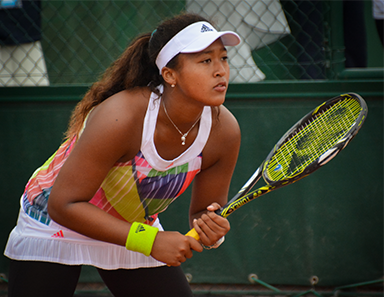
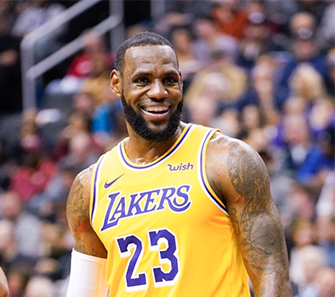
But, we’re all very much aware that many athletes around the world still feel immense pressure to always be strong.
So at SportAccord 2024, the world’s most influential gathering in global sport – with experts coming together under the ‘Power of Sport’ theme – our special ‘Mental Health for Elite Athlete Support’ panel delved into key safeguarding opportunities.
It’s the simple things…
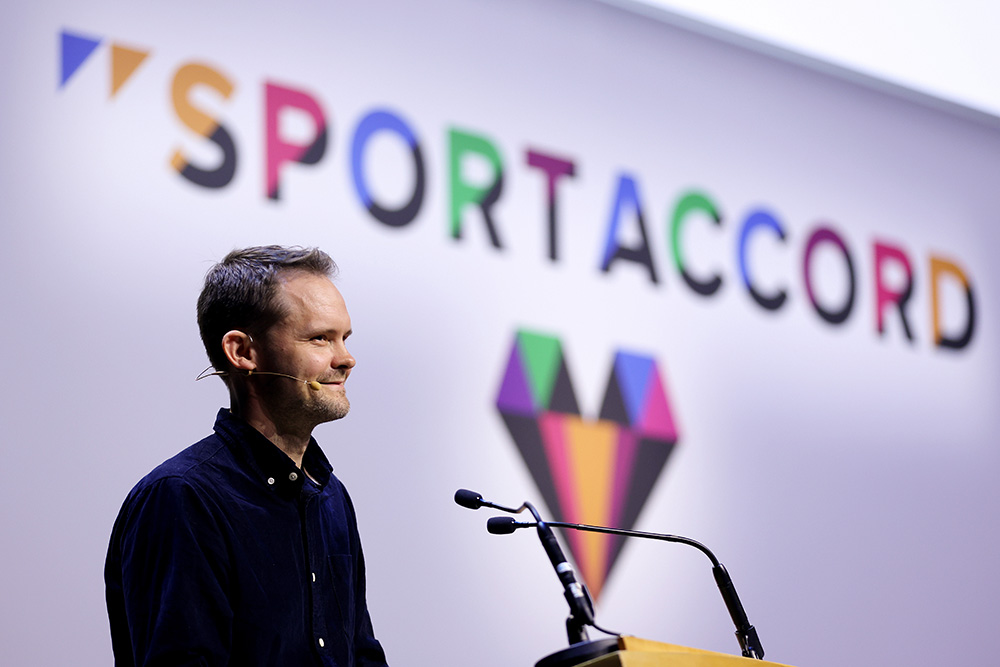
It can be something as simple as busy event schedules that can tip athletes over the edge, as Dr Will Wynter-Bee, sport and exercise medicine specialist and Consultant at European Tour Golf Group explained:
“The travel and logistics – they’re heavy,” Wynter-Bee referenced the constant global travel required for many athletes. On top of that, the fact that athletes do not stay in one place for long means they can’t ground themselves and familiarise with fellow athletes.
“During Covid, we started to have ‘Swings’ – so we had a longer period in one area [of the world]. This stability – in one place – is really useful.”
Athlete-to-athlete conversation
Wynter-Bee underlined the need to create opportunities for athletes to discuss mental health with each other:
“So athletes can start to talk more openly. It makes such a difference having an athlete doing it, rather than someone like me.”
Gregor Swinney, current Scottish National Champion and record holder in the 50m Butterfly, made his Commonwealth Games debut at Birmingham 2022.
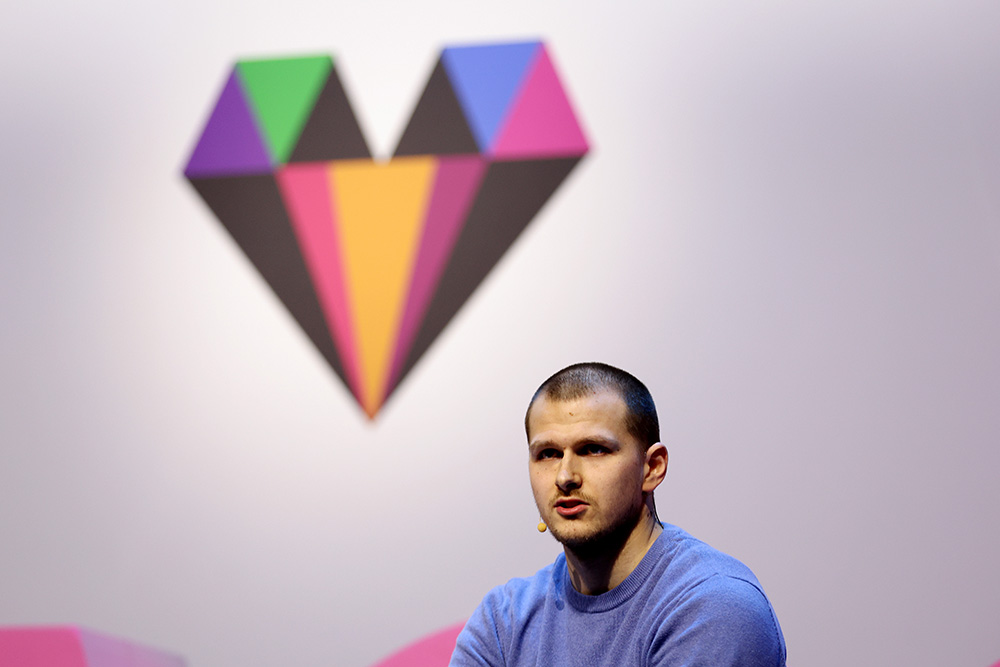
He brought home a bronze medal for his butterfly leg in the heat swim for the 4x100m Medley Relay. But winning this medal sent Swinney on a downward spiral:
“You are not putting me in that Final – I don’t want to be the person to lose Scotland a medal,” he recalled the highly stressful conversation with his team coach for the SportAccord 2024 delegates. Swinney did not want to compete due to feeling physically exhausted.
“That night, we won a bronze medal. We got presented with it. I just felt so guilty. I did not deserve that medal because I hadn’t done the Final. I felt like a fraud.”
Now, Swinney – who continues to be a proud member of Team Scotland – is a mental health advocate. “When you’re really struggling you feel so alone. It’s great to be able to talk to experts and psychologists to really work on the issues. But having somebody [a fellow athlete] who gets what you’re going through is really important as well.”
Mental health ‘up-skilling’
The ‘up-skilling’ of athletes – “giving tools to allow athletes to deal with the adversity when it comes along”, explained Dr Stuart Miller, Senior Executive Director, Integrity & Legal at International Tennis Federation (ITF) is of course also supremely important:
“Tennis players act as individuals, no tennis player is a member of a team. They are individual contractors, effectively self-employed. They are also traveling internationally, all year round, playing in a very popular sport – this means there is a lot of media pressure and attention.”
Alone time
However, Miller also pointed out that the best mental health support systems should also include very ‘basic’ approaches: “A room – which we call ‘a space for dedicated mental health practice’ – is at every ITF event.”
This simple move was welcomed by Swinney – a place where athletes at major events can get away from the noise and crowds, into quiet spaces to think and practice mental health routines, can go a long way to helping athletes think things through.
Paris 2024 – mental health
Athletes’ mental health is also being prioritised at the Paris 2024 Olympic Games, which will open tomorrow. The IOC has set up a “Mentally Fit Helpline”, a dedicated, confidential 24-hour service allowing athletes to talk through their difficulties with a professional. Athletes also have access to a Mind Zone in the Olympic Village for a confidential consultation with an IOC staff member trained in mental health first aid.
Athlete Mental Health – want to know more about how YOU can support your athletes?
Hit the share button on the SportAccord 2024 video!


